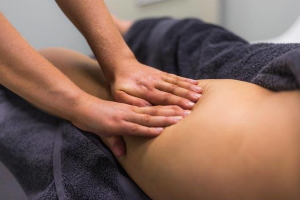I hear it time and time again, “Oh, well. That pain is just cause I’m old”, “Don’t get old, it’s just one thing after the other!” Many people believe that they are destined to be in pain when they’re older, or that they can’t do anything about their pain because that’s just the cards you get dealt when you age. So, does getting older mean that you’re destined to be in pain? I would argue no.
Of course, there are some conditions and injuries that are more prevalent in the elderly. Falls become a higher risk, there can be some structural degenerative changes in joints, and osteoporosis and osteoarthritis are more common. Sarcopenia starts in people aged in their 40’s, which is a gradual decline in muscle mass and function. If not trained, a person can lose up to 50% of their muscle mass by the time they’re 80.
Luckily, these things can mostly be prevented and/or managed quite successfully if done right. Obviously, prevention is going to be our best option. Doing these things are going to help you be the best you in the long run.
- Doing resistance training can be hugely beneficial in the prevention of osteoporosis, degeneration and sarcopenia. It will also help people strengthen their stabilising muscles to maintain and improve good posture.
- When you get injured, are in pain or undergo surgery, see a manual/remedial therapist. This will ensure that your surrounding muscles do not stay in their protective tight mode, and you can regain your proper range of motion. It will also help limit scar tissue formation, which can be problematic in the long run when it’s thick and adhering to other muscles or bones.
- Do your prescribed corrective exercises. We want to make sure you are strong and ready to go after an injury/setback. This can also help prevent the formation of compensation patterns
- Find a way to relieve your stress. Whether that’s meditating, breathwork, swimming, going for a walk, doing some cooking or making sure you get a good nights sleep every night. If you’re stressed, your body will be too. I see it all the time.
- Do the basics well – Nutrition, hydration and sleep. They will make a big difference!
But what if I’ve missed the boat on preventing my pain, and now its chronic, is that just it? No. It’s not. There’s always something we can do to manage your chronic pain. Depending on your situation, this might mean you need a team of health professionals helping you. For others, it may mean getting in some regular sessions to get you Back on Track, before we spend some time maintaining your progress. And for others, you may just need a little bit of help before you’re ready to manage on your own again. It will be different for everyone. Here are some things you can do if you are suffering from chronic pain.
- See your remedial therapist regularly. This will help reduce the tension in your muscles, and relax the central nervous system by turning off pain signals.
- Use heat packs, deep heat, anti-inflammatory creams, tens machines. Whatever works for you. For me, it’s heat packs all the way!
- Keep up gentle exercise. Go for a walk, walk or swim in the pool, or perhaps do some yoga or pilates. Do something you enjoy.
- Reduce your stress. Meditate, do some deep breathing, whatever works for you. Calming your nervous system will turn down the pain. If you struggle to do this, or if you are finding yourself scared of the pain, a psychologist could be a great option to assist you.
- Have a team of healthcare professionals. This might include a remedial therapist, a psychologist, a pain specialist, physio, exercise physiologist, your GP, your pharmacist, any other medical specialists.
If you’re looking for a great remedial therapist to help you, book an appointment with us! You won’t regret it.

Did you enjoy this blog? Have a read of some of our others!

